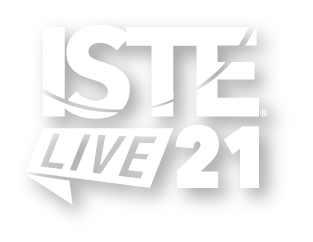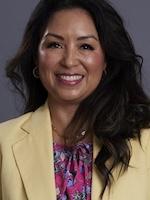

Implementing Digital Citizenship and Restorative Practices for Positive Behavior Intervention and Support |
Participate and share : Interactive lecture
Jamie Galgana Sophia Mendoza MARIA TOLEDO Ed Zurita
Learn how to integrate digital citizenship and restorative practices to create a school culture that is positive, safe, predictable and consistent. Through Schoolwide Positive Behavior Interventions and Supports, students will be able to achieve academically and build positive relationships with each other and adults.
| Audience: | Curriculum/district specialists, Principals/head teachers, Teachers |
| Skill level: | Intermediate |
| Attendee devices: | Devices required |
| Attendee device specification: | Laptop: Chromebook, Mac, PC Tablet: Android, iOS, Windows |
| Topic: | Digital citizenship |
| ISTE Standards: | For Education Leaders: Equity and Citizenship Advocate
Citizen
Digital Citizen
|
We are entering a new era where the concept of digital citizenship should not be separated from a school’s vision and mission. Digital Citizenship and Restorative Practices can be integrated and implemented across the curriculum and ALL grade levels. The integration of Digital Citizenship with Restorative Practices addresses ISTE Essential Condition #1 which calls for a shared vision for educational technology. Teachers, students, staff and families can incorporate Digital Citizenship as part of their shared vision and School-Wide Positive Behavior Intervention and Support Plan (SWPBIS). The integration of Digital Citizenship into the school’s SWPBIS plan also addresses ISTE Essential Condition #12 which requires support policies that promote the use of digital tools and resources for both learning and district/school operations. Through Restorative Practices and promoting Digital Citizenship both inside and outside the classroom, schools will be able to simultaneously address student learning and positive behavior.
GROUNDING:
Why integrate Digital Citizenship with Restorative Practices?
PBIS through Blended Learning
Social Emotional Learning
Breaking the School-to-Prison Pipeline
EXPLORATION:
Virtual Community Building Circle
Incorporating Mindfulness Activities
Learning Management System
APPLICATION:
Implementation in My Own Context
DigCit Commit - ISTE
Restorative Practices in L.A. Unified - Los Angeles Unified School District
Restorative Justice in U.S. Schools - WestEd

Jamie is a Specialist for Instructional Leadership Support with the Instructional Technology Initiative. She supports L.A. Unified educators and leaders in leveraging digital tools and resources for student success through various models of support, including working with Practitioner Schools, supporting Professional Development, and assisting with ITI’s Signature Events. Jamie was an elementary teacher for 10 years and worked in partnership with universities to mentor pre-service teachers. Jamie has a masters in Elementary Mathematics and a Preliminary Administrative Services Credential. She’s a Google Certified Trainer, Microsoft Innovative Educator, Common Sense Certified Educator and a Prosci Certified Change Practitioner.

Sophia Mendoza is a proud alumni of the Los Angeles Unified School District (LAUSD), the nation’s second largest school district, where she’s served in multiple capacities, including as a bilingual teacher, coordinator, assistant principal and principal. She currently serves as director of the district’s Instructional Technology Initiative (ITI), overseeing the adoption of the ISTE Standards and implementation of computer science education and digital citizenship programs across LA Unified’s 1,300 schools. Mendoza has led instructional technology efforts districtwide for five years and head’s up the development of professional learning opportunities that leverage digital tools and model innovative instructional practices to create a personalized learning experiences for all learners. She also supports LAUSD educators in building leadership and cultivating learners who are ready for a growing digital world. Her work has been recognized by the Center for Digital Education and the Learning Counsel. She’s been honored as a NextGeneration Leader by EdScoop and CoSN, a 2018 Most Influential People in EdTech by Tech & Learning, an ISTE Impact Award honoree, Innovator of the Year for 2019 by Education Dive, and was recently named the Association of California School Administrators (ACSA) Region 16 Technology Administrator for 2020.



Ed Zurita is an ISTE Certified Educator and member of the Los Angeles Unified School District’s Division of Instruction Instructional Technology Initiative (ITI) where he helps to lead the district’s 21st century instructional practices through implementation of the International Society for Technology in Education (ISTE) standards and the district’s Leading with Instruction approach. Mr. Zurita provides professional development, support and training to teachers, administrators, paraprofessionals and other educational staff both in the schools that he serves and throughout the district.